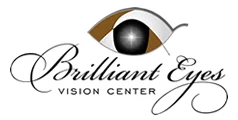FAQs
How often should I get an eye exam?
Dr. Davison recommends annual preventative eye health exams for all her patients beginning at the age of 3.
I don’t have insurance. Will I get charged an arm and a leg?
Dr. Davison and her team will fully investigate your benefits to confirm if you have medical or vision coverage for eye health. If we discover that you do not have any benefits for eye health, we do offer reduced fees and financing. Please contact the office to see if you qualify for this added benefit.
What are those small things I see floating all the time?
You may be experiencing "Floaters" which are a result of the normal aging process. However, if you are experiencing a sudden onset of Floaters with Flashes of light, you may be having a Retinal Detachment. This is a medical emergency. Please contact our office immediately.
Why is there an extra fee for a contact lens exam?
A contact lens is a medical device that must be properly fitted and evaluated on your eye by an eye care professional, thus this service requires additional fees. Once your exam is finalized, the fees include your both your eyeglass and contact lens prescription, diagnostic trial lenses, office follow ups for contacts up to 30 days, and solution starter kit. Please call our office for your insurance benefits regarding contacts lenses.
Why is a dilation important?
Dr. Davison recommends dilation for all new patients, as early as 3 years of age. The dilation is an important part of the eye health examination. A drop is instilled that will dilate your pupil so that Dr. Davison can thoroughly examine your retina for any signs of early eye diseases or congenital eye diseases. The dilation will make your near vision blurry for 1-2 hours. It typically does not affect your distance vision. However, if you are uncomfortable about driving post dilation, please arrive with a driver to assist you post exam. Please call our office for further details.
What is the difference between an ophthalmologist and an optometrist?
An optometrist is trained eye care professional with a doctorate in optometry. Optometrists prescribe glasses, contact lenses and specialize in the eye and the tissue surrounding the eye. In the state of Georgia optometrist can legally diagnosis, treat and manage a host of eye conditions and diseases including red eyes and Glaucoma. Optometrist can prescribe medications both topically and orally to treat various eye conditions or disease. In the state of Georgia Optometrist cannot perform surgical procedures, optometrist can co-manage various procedures under the guidance of an ophthalmologist.
Do you take medical insurance?
Yes, we take a host of medical insurance plans. Medical insurance plans allow Dr. Davison and her team to service patients who are experiencing medical eye issues. If you are experiencing medical eye symptoms please contact our office immediately.
Why should I wear sunglasses?
Exposure to ultraviolet rays over time has been linked to cataract development as well as --of UV exposure to your eyes. Research has shown that wearing sunglasses earlier in life, decreases your chances of developing these conditions. We offer Babiator sunglasses for patients as young as 3 years of age. Please call our office for more details.




